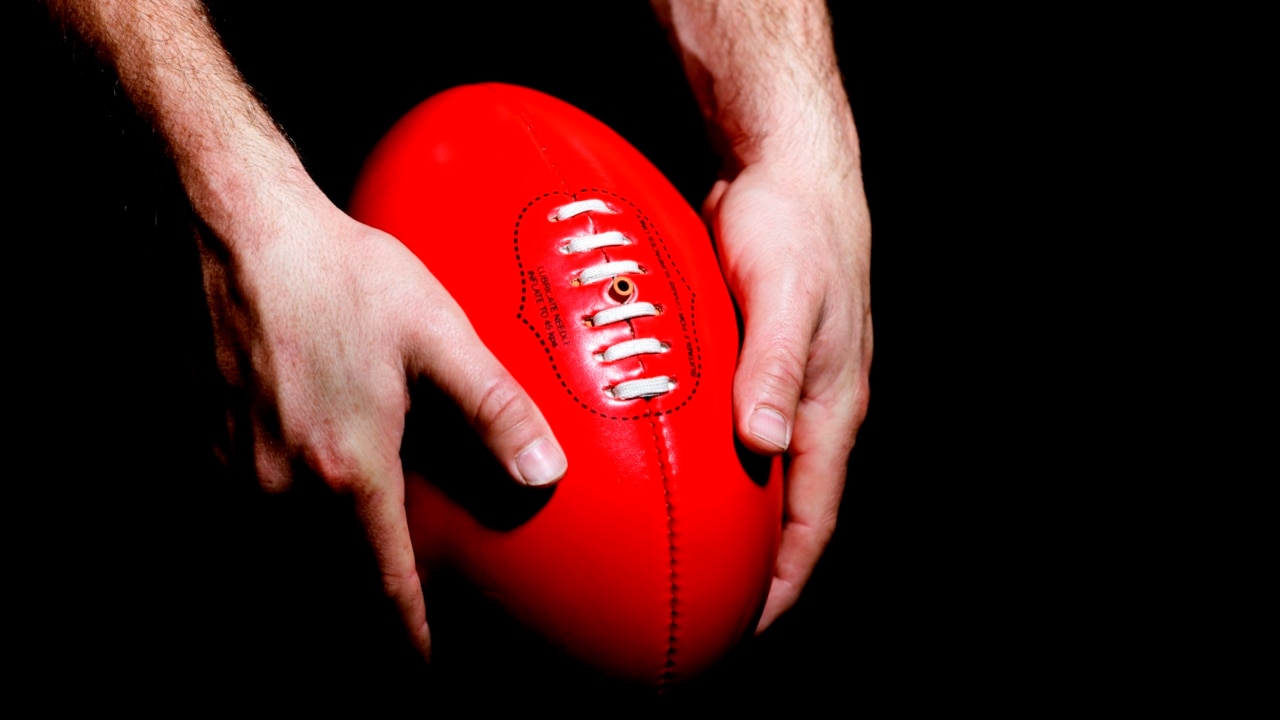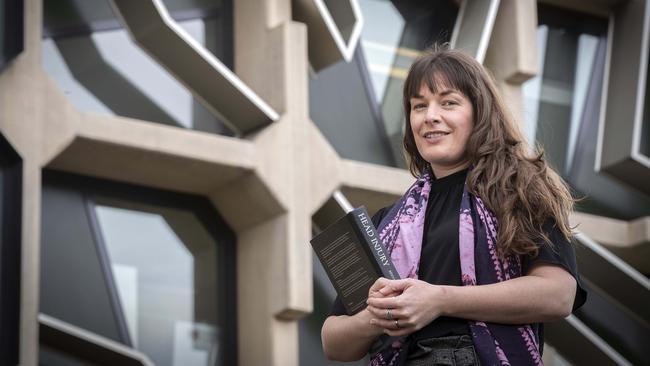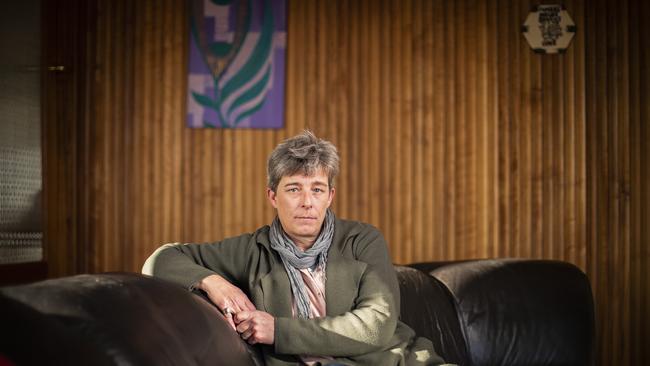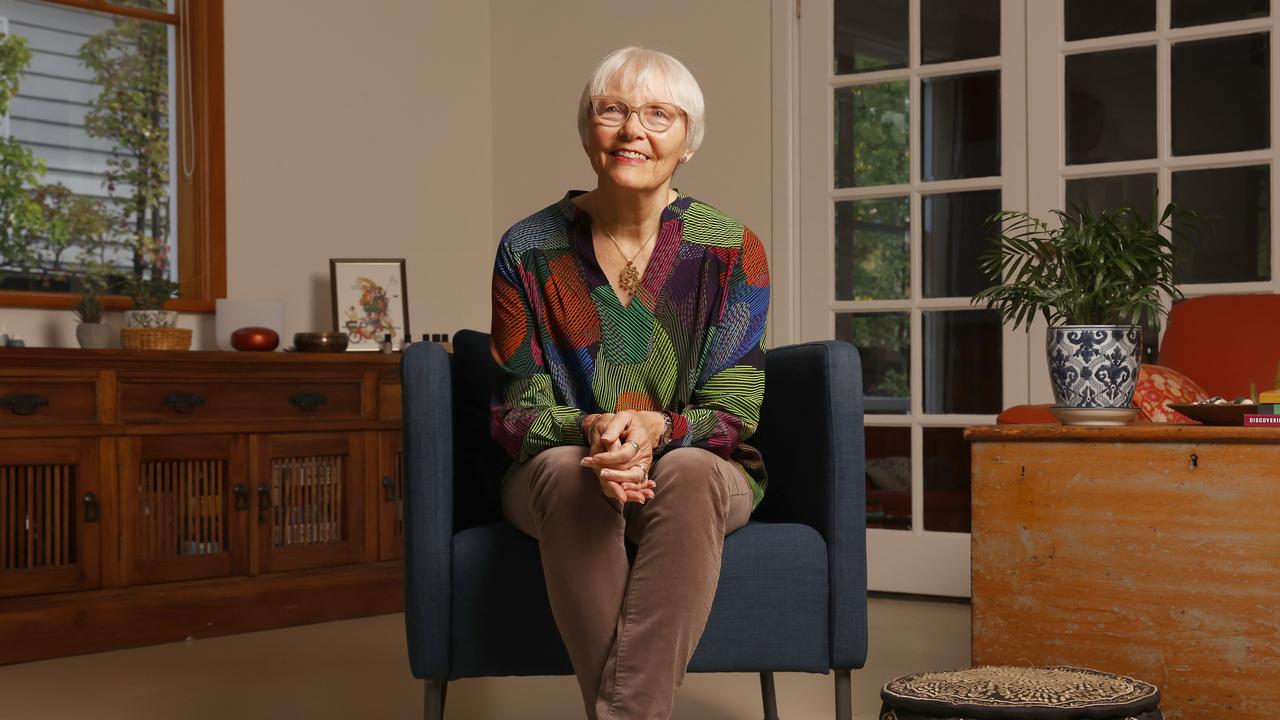Tassie academic to lead $1m project studying the ‘silent epidemic’ of traumatic brain injuries
Nearly 70 million people a year will suffer a traumatic brain injury and a new research project aims to overcome a significant “lack of knowledge” about the damaging effects.

Lifestyle
Don't miss out on the headlines from Lifestyle. Followed categories will be added to My News.
A TASMANIAN academic has received almost $1m to lead a national research project to help people living with a traumatic brain injury.
Dr Jenna Ziebell, from the University of Tasmania’s Wicking Dementia Research and Education Centre, said the aim of the project was to increase community awareness through education, visual arts and stories of those living with a traumatic brain injury.
“In a lot of cases, you don’t visually see a traumatic brain injury (TBI), however, this type of injury can have lifelong effects,” she said.
“Effects vary due to severity, location of injury, age at which injury was sustained and time since injury.
“Some individuals will have symptoms of injury for a couple of hours, others will live the rest of their lives with symptoms, which could be cognitive, emotional, physical dependent on location and severity.
“Australasia has one of the highest reported incidences of TBI, and our project is wanting to assess what the current awareness of a TBI is and address the lack of knowledge with a number of educational programs and tools.”

TBI is often referred to as a silent epidemic with more than 69 million people across the world sustaining a TBI every year. TBIs can happen after car accidents, falls, physical altercations and sporting accidents.
Dr Ziebell said many people who had a TBI did not seek medical treatment.
“A concussion is a mild TBI and we need to change people’s attitudes and raise awareness that concussion is something we should be seeking medical advice on,” she said.
The funding for the project, Transforming Awareness, Literacy & Knowledge of Traumatic Brain Injury (TALK-TBI) has been provided by the Medical Research Future Fund.
It will tap into partnerships across Australia, including brain injury associations, to create the educational resources, which includes the Understanding TBI Massive Open Online Course aimed at increasing awareness of TBI in the community.
“In order to help provide greater support for individuals living with TBI, we need to hear from people who have been affected, and their family and carers, to understand some of the potential barriers, which might include community attitudes or poor access to rehabilitation,” Dr Ziebell said.
“If we can help educate the community about what a TBI is, and what it means to live with one, we can improve the health and wellbeing of people living with a TBI.
“Every TBI is different, every person is different, so no two rehabilitations will be the same. One aspect of TALK-TBI is to work with those living with TBI to understand where they feel support is lacking.”
More than 17,500 people enrolled in the Massive Open Online Course last year and the course will probably be run twice in 2022.
SMALL CARD, BIG BENEFITS FOR BRAIN INJURY SUFFERERS
CATE Curwood’s life changed forever when a 12kg wooden curtain pelmet fell on her at home in early 2019.
What followed were bouts of concussion, the effects of post-concussion, and an eventual diagnosis that she had acquired a brain injury.
At the time of the incident, the mother of two was working full-time as an employment consultant, but the injury rendered her unable to work and she is now on a disability pension.
“I have visual and sensory issues on all senses … which makes life very restricted and managed,” said the Howrah woman in sharing her story during Brain Injury Awareness Week.
“I’ve got to get my tai chi in every day to keep my body moving, and then I have about a two-hour window of operatable time.
“It’s fairly miserable really, but we look for the highlights and just try to work through it.”
Ms Curwood, 44, said her injury had also caused issues on occasions when she was shopping, including one recent example where she inadvertently failed to pay.
Thankfully, a national assistance card that had been issued to Ms Curwood helped to defuse the situation, after she was approached by the store’s security.
“It’s not a get out of jail card – I still have to obey the rules – it’s just sometimes I need an extra moment to do that,” she said.
“The situation was defused and I still don’t have a criminal record.”

An expression of interest campaign has been launched for the rollout of the national assistance card, aiming to help people with a brain injury feel more confident in everyday social situations and to educate the community.
Brain Injury Association of Tasmania executive officer Deborah Byrne said the card would give those living with brain injury greater independence.
“Cate’s story is a great example regarding the importance and value of the national assistance card,” she said.
“The national assistance card will initially be available to all people in Australia living with brain injury. The Brain Injury Association of Tasmania hopes that, in the future, the card will be available to all Australians living with disability and/or health conditions.”
Tasmania Police Inspector John Toohey welcomed the rollout of the card.
“We see this as an important resource for people with brain injury to communicate their condition to members of the public and first responders, when they cannot otherwise do so,” he said.
“This can help emergency personnel administer appropriate assistance should they attend a situation where a person with brain injury has become distressed or overwhelmed.”
Inspector Toohey said police would work with their emergency services counterparts to brief them on the rollout of the card.
Ms Curwood lives with her two teenage daughters and her 75-year-old father, who she said took great care of her.


